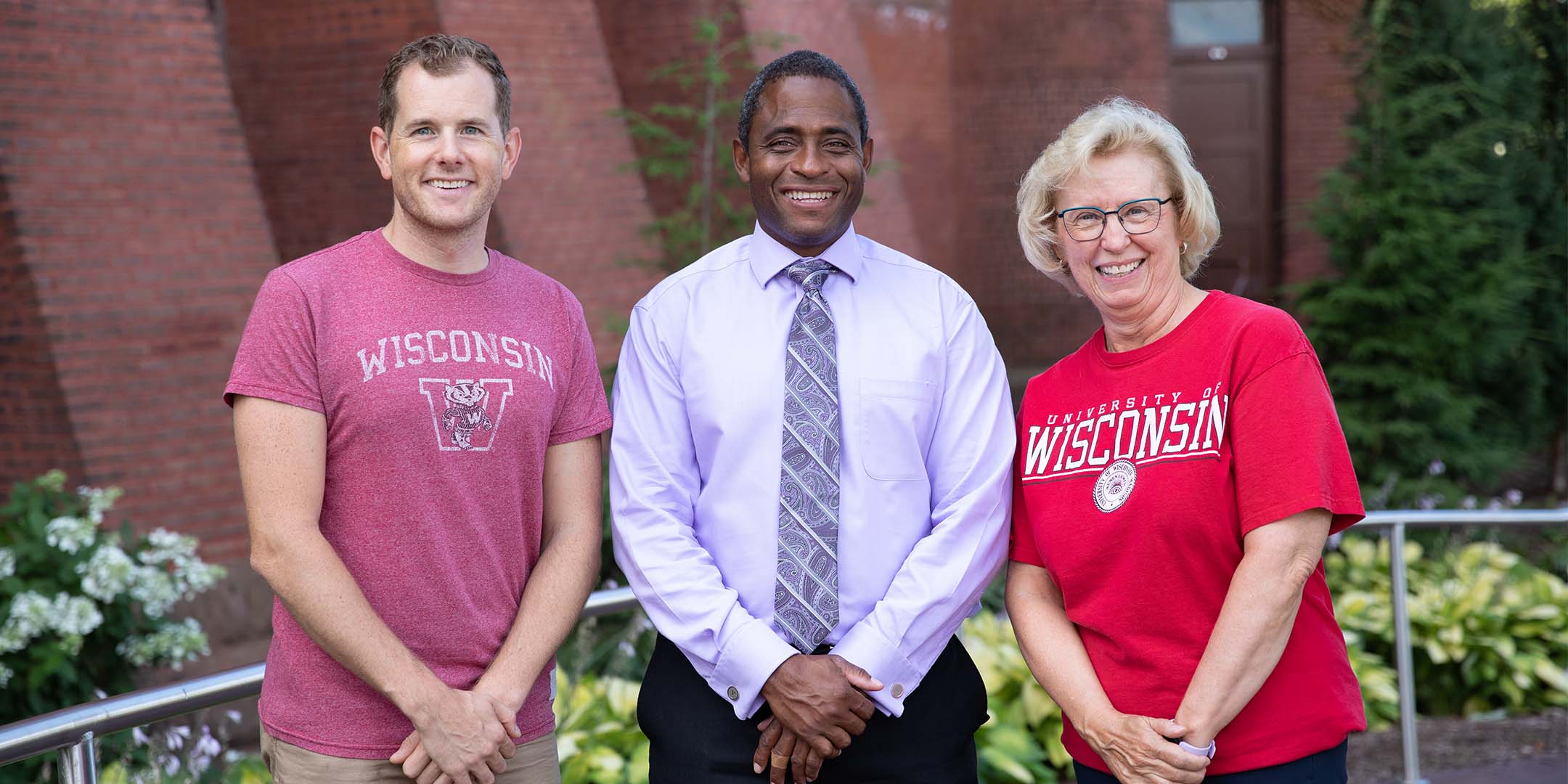
Throughout her career, Sheila Ruhland MS’84, PhD’90 has witnessed underrepresented students being unnecessarily labeled and separated. These experiences left her keenly aware of the importance of ensuring that everyone in higher education feels a sense of belonging. So, when Diana Hess, dean of the UW School of Education, announced the establishment of the Office of Equity, Diversity, and Inclusion, Ruhland was inspired to act.
To celebrate her commitment to this cause, Ruhland created the Dr. Andrew Bremer Fund in Diversity and Inclusion as a part of her estate plan. She named it after her nephew and godson, Andrew Bremer ’10 — she knew he would continue supporting this vital work for many years to come. “This is the legacy I want to leave,” shares Ruhland. “It’s part of building something I know will be sustained long after I’m gone.”
Bremer is humbled by the fund being named in his honor, and he is beyond proud of his aunt’s tenacity in the face of professional barriers. Speaking to the importance of the fund, he highlights the Wisconsin Idea. “It represents the guiding principle that education should influence people’s lives beyond the classroom, and it carries the ethos that the positive influence of the university should extend to everyone,” says Bremer. “I know this fund will help support that mission.”
The fund is instrumental in supporting the school’s diversity, equity, and inclusion mission, and a portion of it has been applied to two community-based education initiatives — the Education Policy Engagement Grant Initiative and the Latine/x Student Affinity Group. The grants offer financial assistance to undergraduates engaging in community partnership projects, participatory action research projects, or partnership projects related to social justice and antidiscrimination.
The School of Education Latine/x Affinity Group provides biweekly discussions and hosts paint nights, open dialogues, and other events for students who identify as Latinx. “The purpose of our group is to create community within the School of Education,” says Cynthia Baeza, a doctoral student in curriculum and instruction. “There is a campuswide group, and our affinity group shares some of the same goals and interests. We always have new people coming in from other departments — it’s great to be able to connect with a variety of individuals.”
Ruhland had her own experience with discrimination when she was labeled “non-college bound” by her high school guidance counselor. Fortunately, her instructors at Madison College encouraged her to pursue a bachelor’s degree. It is Ruhland’s hope that her estate will continue to grow, allowing the fund to grow as well, but it’s the work that this fund will support that’s most important to her. “What matters to me is compassion from a student perspective,” she shares. “We need to not only recruit students, faculty, and staff, but also maintain them.”
Those working at the school are seeing the impact of Ruhland’s generous vision. “This fund has already supported the school’s Office of Equity, Diversity, and Inclusion,” says Percival Matthews, the associate dean overseeing the office. “From affinity groups to undergraduate impact grants, the office is supporting students, staff, and faculty across the school.”
